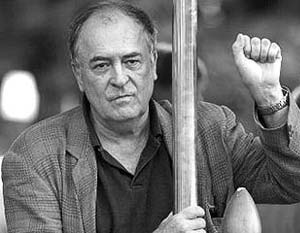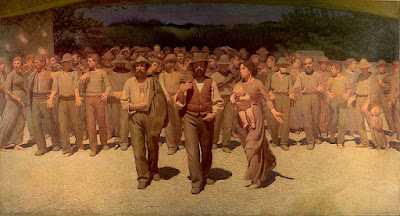Bernardo and I
I never met Bernardo Bertolucci but there was a gawking moment in a London restaurant. Let me hasten to add, it did not cause me to go over and assault him in the manner I am unreliably reported to have dealt with Richie Benaud in a restaurant in the South of France.
But, arriving in London and with an afternoon off from the onerous duties I was then undertaking on behalf of the Australian Government, I went off for lunch with Tony Rayns. We had not long settled down, this was back in 1984 BTW. Tony was shortly tapped on the shoulder by someone unknown to me. This turned out to be Jeremy Thomas the famous film producer. “Er, do you think you could come over to our table? Bernardo has a few questions about making films in China.” Tony went off as I swivelled round to gawk at the great man at a nearby table. Tony came back after a while and conversation resumed. Nothing was offered nor asked about what it was Bernardo wanted to know, at least as I recall.
Bertolucci’s two previous films had been La Luna and Tragedy of a Ridiculous Man. The former was made in 1979 and screened at the 1980 Melbourne Film Festival. I had to trek up to Sydney to speak to Arthur Griffin, the then head of Columbia Pictures in Australia. Arthur said it would be OK to screen it but held out no hope for the film’s success. He told me he thought it would be a film which would do immeasurable damage to star Jill Clayburgh’s till then burgeoning reputation and not do much for Bertolucci’s. For a moment or two there was a suggestion that Bertolucci might come out for the Melbourne and Sydney festivals that year but it never happened.
Not having seen La Luna I was hardly in a position to comment but It was a film by the director of Before the Revolution, Partner, The Spider’s Strategy, The Conformist, Last Tango in Paris and 1900. At the time as far as I was concerned he could do no wrong. With Pasolini, the Tavianis, Bellocchio and Bertolucci in the lead, the Italian cinema was at the head of the international production pack.
Still Australia was in fact one of the few countries where some cinemas screened 1900 in its uncut version. In 2005 the same full version came out on DVD. Both times the Australian censor either waved through the full length uncut version without watching it or waved it through notwithstanding that it had a couple of moments at least that should have raised eyebrows. Whatever, for a while that Australian DVD release, the first in the world, became a target for collectors. Visitors to the Sydney and Melbourne film festivals were buying multiple copies to take back to friends in Europe and America.
In the films mentioned above there were more than a few masterpieces. Wikipedia lists 24 titles as being made by Bertolucci. At least six, all documentaries as far as I can see, have never been screened in Australia though it’s possible they went out on SBS without us, or at least a lot of us, knowing.
After his triumph with The Last Emperor I think it’s fair to say his reputation waned. There are scattered champions for just about everything he did from then on but no consensus that anything he made through the nineties and noughties had the oomph of The Conformist and The Spider’s Strategy.
Finally, a last Bertolucci moment. Following Bologna one year, Ken Wallin and I spent half a day in the wonderful Brera gallery in Milan. It has a remarkable Mantegna and a Caravaggio but the biggest shock I got was to come across Giuseppe Pellizza da Volpedo’s painting “Fiumana” painted in 1895/96 (below). The shock of seeing the painting and realising that this was the inspiration for the opening title sequence of 1900, and the final image that the sequence freezes into, was quite stunning. Maybe I should have known all that but I didn’t at the time.
For a most insightful view of Bertolucci's work click on this piece by Terrence Rafferty in the New York Times


No comments:
Post a Comment
Note: only a member of this blog may post a comment.